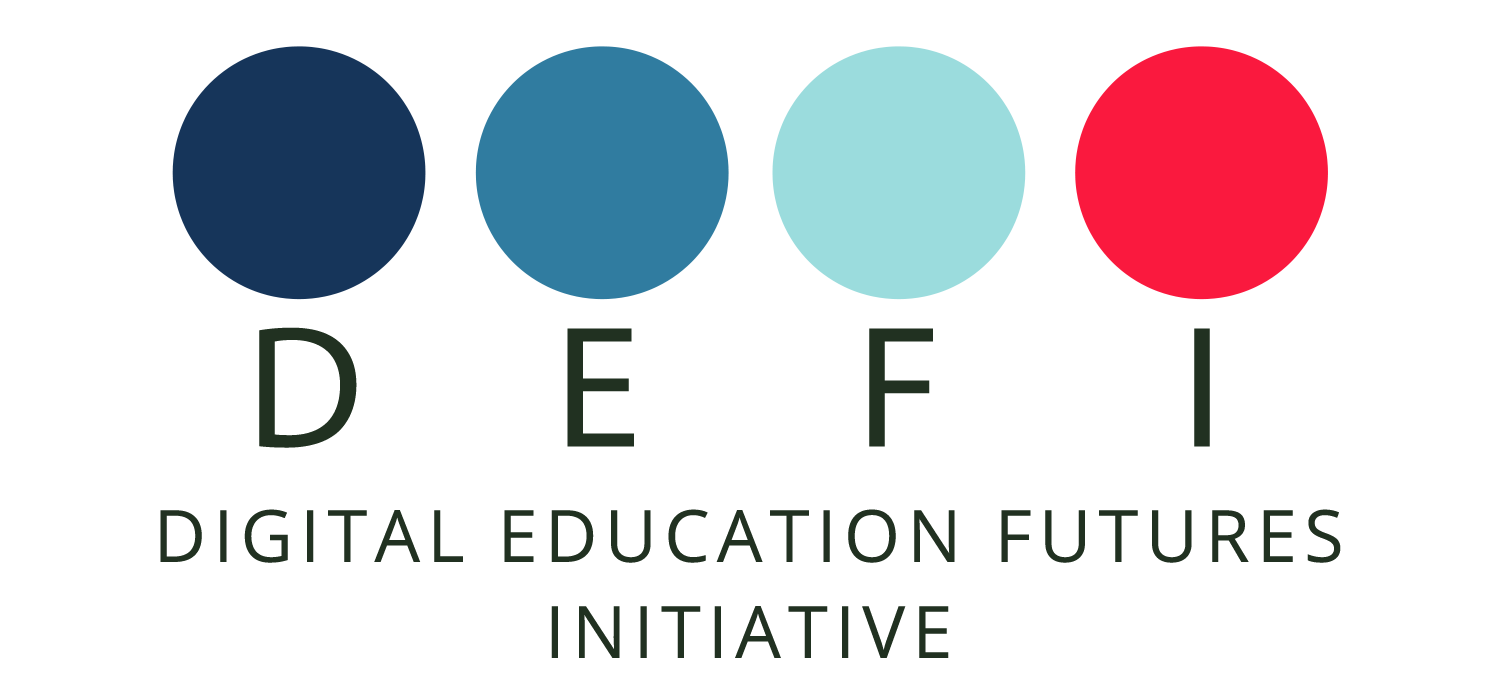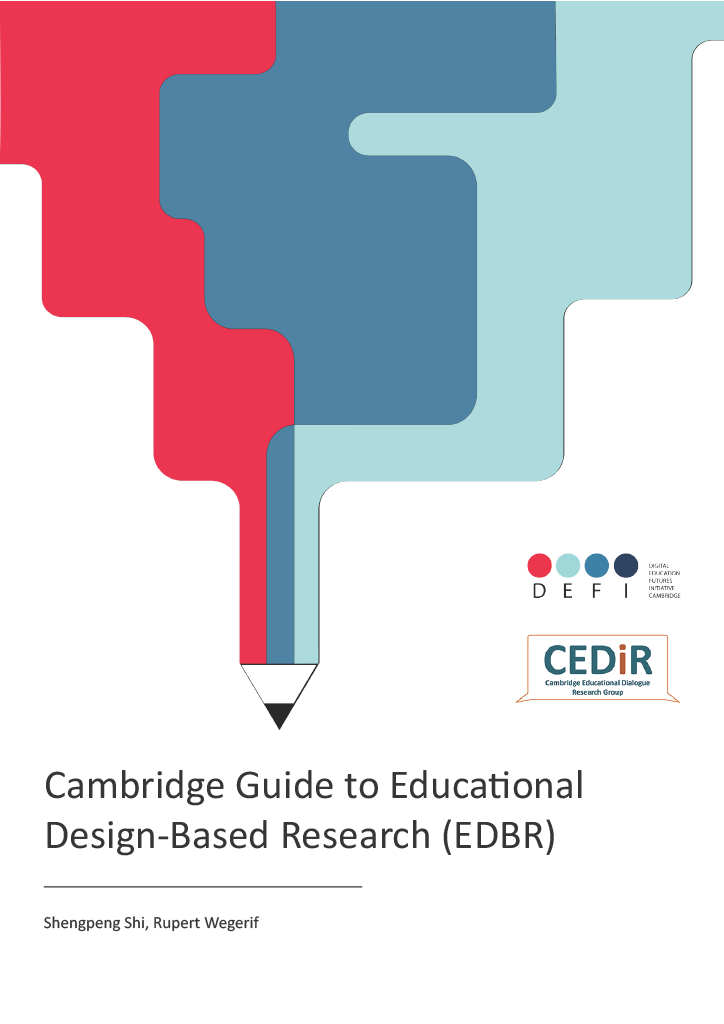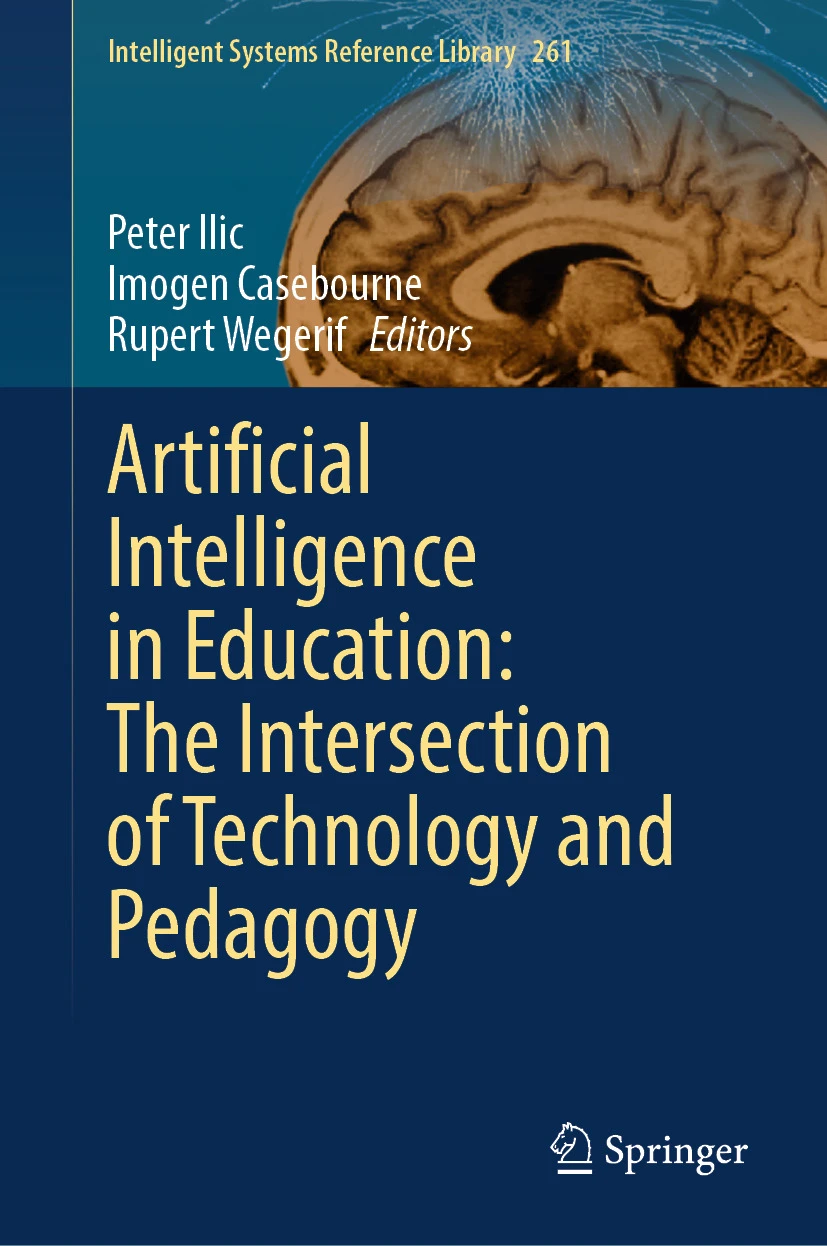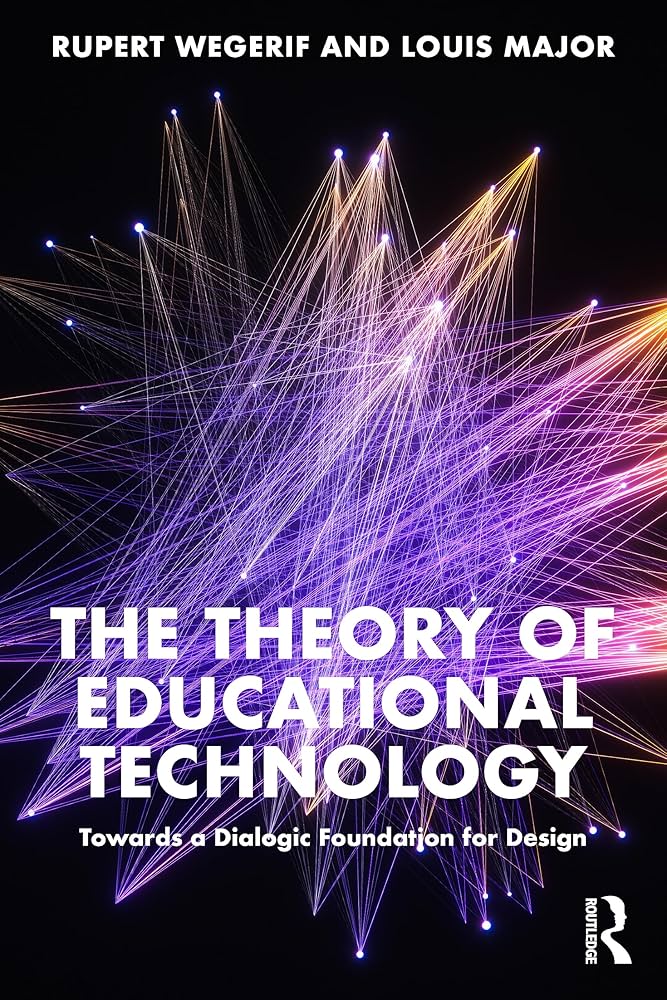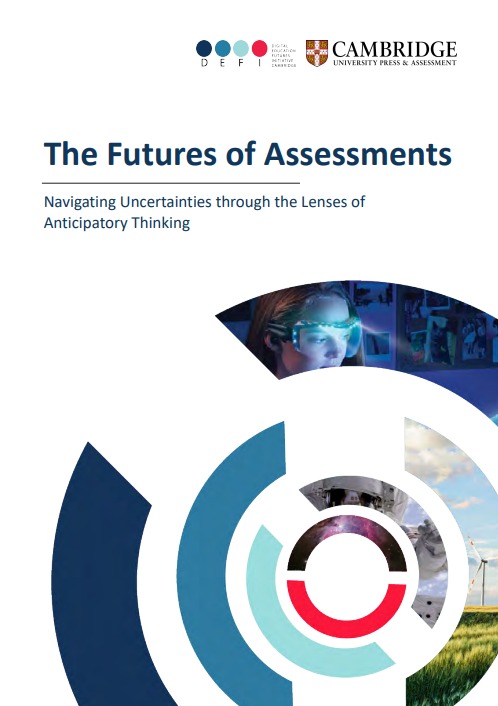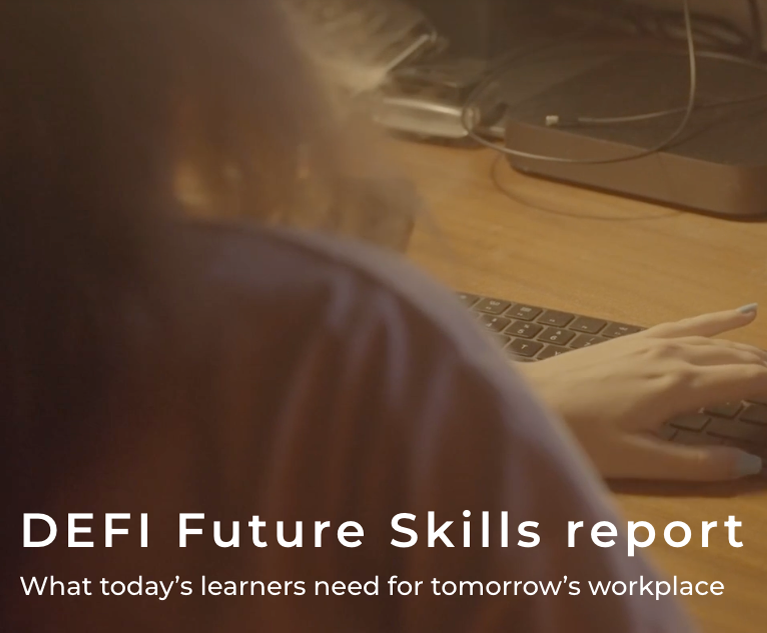Our Work
Cambridge Guide to Educational Design-Based Research (EDBR)
DEFI members Professor Rupert Wegerif and Dr Shengpeng Shi worked with members of the Cambridge Educational Dialogue Research group to create a guide for researchers wanting to perform Educational Design-Based Research.
Select the image to view this guide.
Artificial Intelligence in Education: The Intersection of Technology and Pedagogy.
Artificial Intelligence in Education: The Intersection of Technology and Pedagogy, was co-edited by Dr Peter Ilic, Senior Associate Professor at the University of Aizu; Professor Rupert Wegerif, Founder of DEFI; and Dr Imogen Casebourne, Innovation Lab Research Lead at DEFI.
Select the image to go to the publisher’s website.
The Theory of Educational Technology: Towards a Dialogic Foundation for Design
The Theory of Educational Technology: Towards a Dialogic Foundation for Design, was co-authored by Prof Rupert Wegerif, Founder of DEFI, and Dr Louis Major, Senior Lecturer in Digital Education at the Manchester Institute of Education. It was launched at the 2024 DEFI Conference.
Select the image to go to the publisher’s website, which includes a free preview of the first part of the introduction.
The Futures of Assessment: Navigating Uncertainties through the Lenses of Anticipatory Thinking
Using visiting Fellow Dr Fawaz Abu Sitta’s Horizon Scanning method, DEFI’s Innovation Lab worked with Cambridge University Press & Assessment to complete a comprehensive project looking at potential futures of assessment. The report was presented at the AEA Conference Nov 2023.
Select the image to view the full report.
The DEFI Future Skills Report
If the skills of the past won’t prepare the learners of today for the challenges of the future, where should we focus our energies instead? Discover the nine categories of Future Skills that today’s learners need for tomorrow’s workplace.
Learn more about the report by selecting the image.
Other research, DEFI people
Research by DEFI people
Casebourne, I. (2024). Left to their own devices: An exploration of context in seamless work-related mobile learning. British Journal of Educational Technology. https://doi.org/10.1111/bjet.13410.
Casebourne, I. (2024). ‘Navigating Context and Conflict – Investigating seamless mobile learning through the lens of Hedegaard’s framework. Learning, Culture and Social Interaction 47: 100837. https://doi.org/10.1016/j.lcsi.2024.100837.
Shi, S., & Wegerif, R. (2024). Cambridge Guide to Educational Design-Based Research (EDBR). Cambridge: Digital Education Futures Initiative (DEFI) & Cambridge Educational Dialogue Research (CEDiR). ISBN 978-1-7384336-1-2.
Wegerif, R. & Major, L. (2024). The theory of educational technology: Towards a dialogic foundation for design. Routledge. ISBN 9781032056371.
Abu Sitta, F., Maddox, B., Casebourne, I., Hughes, S., Kuvalja, M., & Oates, T. (2023). The futures of assessment – Navigating uncertainties through the lenses of anticipatory thinking. Cambridge: Digital Education Futures Initiative (DEFI) & Cambridge University Press and Assessment (2023). ISBN 978-1-7384336-0-5.
Hogan, M. J., Barton, A., Twiner, A., James, C., Ahmed, F., Casebourne, I., Steed, I., Hamilton, P., Shi, S., Zhao, Yi., Harney, O. M., & Wegerif, R. (2023). Education for Collective Intelligence. Irish Educational Studies 2023: 1–30. https://doi.org/10.1080/03323315.2023.2250309.
Zumbo, B.D., Maddox, B. & Care, N. (2023). Process and Product in Computer-Based Assessments: Clearing the Ground for a Holistic Validity Framework. European Journal of Psychological Assessment.
Kerslake, L. & Hannam, J. (2022). Designing media and information literacy curricula in English primary schools: Children’s perceptions of the internet and ability to navigate online information. Irish Educational Studies, 41(1), 151–160. https://doi.org/10.1080/03323315.2021.2022518
Martin, K. (2022). Using mobile phones to enhance small group dialogic learning: A design based approach to educational innovation in rural East Africa. Apollo – University of Cambridge Repository. https://doi.org/10.17863/CAM.85755
Abu Sitta, F., Aldhaheri, S. & Woodgate, D. (2020). The world post Covid-19: Plausible scenarios and paradigm shifts. University of Dubai. The-World-Post-COVID-19-Report-FINAL.pdf (ud.ac.ae)
Addey, C., Maddox, B., & Zumbo, B.D. (2020). Assembled validity: Rethinking Kane’s argument-based approach in the context of international large-scale assessments (ILSAs). Assessment in Education: Principles, Policy and Practice. 27 (6) 588-606.

